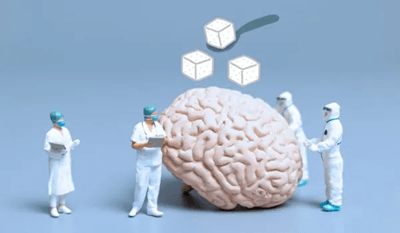 Low- and no-calorie artificial sweeteners are common in diet sodas, sugar-free snacks, and processed foods. They’re promoted as safe substitutes for sugar, but new research suggests a different story. Long-term use may be linked to a faster decline in cognitive functions like memory and verbal fluency, especially in people under 60 and those with diabetes.
Low- and no-calorie artificial sweeteners are common in diet sodas, sugar-free snacks, and processed foods. They’re promoted as safe substitutes for sugar, but new research suggests a different story. Long-term use may be linked to a faster decline in cognitive functions like memory and verbal fluency, especially in people under 60 and those with diabetes.
What is the difference between global cognition and verbal fluency?
Global cognition is an umbrella measure of overall thinking ability. It includes memory, problem-solving, reasoning, and focus. Verbal fluency is more specific and measures how quickly a person can recall and use words. In studies of sweetener use, both global cognition and verbal fluency declined faster in people who consumed higher amounts, showing that sweeteners may influence both general thinking and language-related skills.
Why was the link stronger in people with diabetes?
People with diabetes are already at increased risk for problems with memory and thinking. The study showed that higher sweetener consumption in people with diabetes was linked to greater declines in memory and global cognition. This may reflect the combined effect of metabolic challenges and heavier reliance on sugar substitutes as part of diabetes management.
Main differences between high and low consumers of artificial sweeteners
Participants in the lowest group consumed around 20 mg daily, while the highest group averaged nearly 200 mg – about the amount in a can of diet soda. After eight years, those in the higher group experienced up to 62% faster decline in global cognition and more than 170% faster decline in verbal fluency compared with the lowest group. This translated into about 1.6 extra years of brain aging.
Was there a difference in cognitive decline for older adults?
The negative effects were strongest in adults under 60. For people over 60, no clear link was seen between sweetener use and cognitive decline. This suggests that midlife dietary exposures may be especially important for long-term brain health.
 What do the terms global cognition and verbal fluency really mean?
What do the terms global cognition and verbal fluency really mean?
Global cognition captures the combined performance of multiple mental tasks, such as remembering a story, solving a puzzle, or focusing on instructions. Verbal fluency measures language-based quick thinking, often tested by how many words a person can generate in a minute. Decline in both areas suggests that heavy sweetener use may broadly affect thinking while also impairing how easily people use language.
How did researchers test memory skills over time?
The Brazilian Longitudinal Study of Adult Health followed over 12,000 participants for eight years. Diet was assessed using a food frequency questionnaire, and thinking and memory skills were measured through six cognitive tests, including verbal fluency and recall. By analyzing changes over time, researchers found that high sweetener intake was associated with a significantly faster decline.
Does an association mean sweeteners cause cognitive decline?
The study shows an association, not direct proof of cause. People who consumed more sweeteners also showed greater decline, but other factors, such as lifestyle or underlying health, could play a role. Still, the fact that nearly all individual sweeteners studied (except tagatose) were linked to poorer outcomes strengthens the concern that artificial sweeteners may contribute to long-term decline.
What are the main takeaways from the study?
There does not appear to be any benefit from a high level of consumption of artificial sweeteners, and in many cases, there is a direct link to losses of cognitive function and brain powers. For younger people (under 60s) with diabetes, the need to stay away from sugar intake may be driving them towards sweeteners, but for them, the risk is much higher that this will cause damage later on. Use of the newer GLP-1 diabetes medications like Ozempic and Mounjaro could be beneficial because they control blood sugar levels better.
General brain health can be boosted by increasing the intake of omega-3 fatty acids, which are essential in nerve signalling. A simple supplement such as Zoomind provides a supply of both forms of omega-3s (EPA and DHA) as well as a precursor to the essential neurotransmitters dopamine and L-tyrosine to enhance cognitive function.
Frequently asked questions about artificial sweeteners and cognition
Do all artificial sweeteners affect brain health the same way?
Most sweeteners in the study, including aspartame, saccharin, erythritol, and sorbitol, were linked to a faster decline in memory and verbal fluency. The only exception was tagatose, a natural low-calorie sweetener, which did not show harmful effects. This suggests that not all sweeteners carry the same risks.
Why might artificial sweeteners harm memory and thinking?
Researchers are still exploring the exact reasons. Possible explanations include disruption of the gut-brain connection, interference with glucose metabolism, or inflammation triggered by chemical sweeteners. These processes could accelerate the aging of the brain over time.
How much sweetener use counts as high consumption?
High consumption in the study averaged about 191 mg daily. For aspartame, that amount equals roughly one can of diet soda. Even this level was enough to predict a faster decline in memory and verbal fluency in younger adults.
Does avoiding sweeteners lower the risk of dementia?
The study did not directly test dementia outcomes. However, because dementia develops gradually after years of decline, faster drops in cognition and verbal skills may increase the risk later. Limiting artificial sweeteners may help protect long-term brain health.
Are natural alternatives like fruit or honey safer?
Yes. The study found that natural substitutes such as fruit and honey do not carry the same risks as artificial options. Tagatose also did not show harmful effects. Choosing natural sweeteners may be a safer way to add flavor while avoiding potential long-term consequences.













